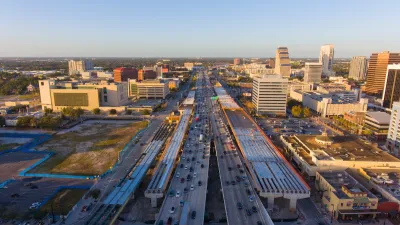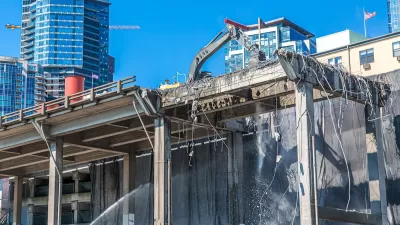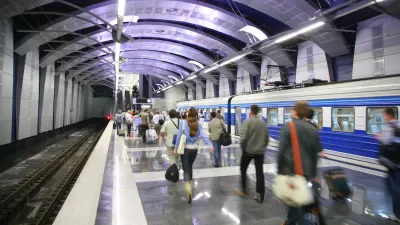It's an article of faith among many that GM, Firestone, and Standard Oil destroyed the streetcar networks of the early 20th century. Stephen Smith suggests that Progressive Era and New Deal planners and politicians should shoulder more of the blame.
Smith writes that the General Motors story "has little basis in reality. A cursory look at transportation history shows that motorization was already well underway by the time National City Lines – the holding company backed by GM, Firestone Tire, and Standard Oil, among others – started buying up transit companies in 1938. Other factors, often championed by progressives, had already drove the industry into decline and it was really only a matter of time before buses took over. Although General Motors and other car-centric companies were certainly lobbying the government in their favor, the progressive tendency to vilify private transit companies had already turned the public against streetcars, and local governments were already heavily predisposed towards motorization by the late '30s."
Thanks to Stephen Smith
FULL STORY: The Great American Streetcar Myth

Study: Maui’s Plan to Convert Vacation Rentals to Long-Term Housing Could Cause Nearly $1 Billion Economic Loss
The plan would reduce visitor accommodation by 25,% resulting in 1,900 jobs lost.

North Texas Transit Leaders Tout Benefits of TOD for Growing Region
At a summit focused on transit-oriented development, policymakers discussed how North Texas’ expanded light rail system can serve as a tool for economic growth.

Using Old Oil and Gas Wells for Green Energy Storage
Penn State researchers have found that repurposing abandoned oil and gas wells for geothermal-assisted compressed-air energy storage can boost efficiency, reduce environmental risks, and support clean energy and job transitions.

Private Donations Propel Early Restoration of Palisades Playground
Los Angeles has secured over $1.3 million in private funding to restore the Pacific Palisades playground months ahead of schedule, creating a modern, accessible space that supports community healing after recent wildfires.

From Blight to Benefit: Early Results From California’s Equitable Cleanup Program
The Equitable Community Revitalization Grant (ECRG) program is reshaping brownfield redevelopment by prioritizing projects in low-income and environmental justice communities, emphasizing equity, transparency, and community benefits.

Planting Relief: Tackling Las Vegas Heat One Tree at a Time
Nevada Plants, a Las Vegas-based nonprofit, is combating the city’s extreme urban heat by giving away trees to residents in underserved neighborhoods, promoting shade, sustainability, and community health.
Urban Design for Planners 1: Software Tools
This six-course series explores essential urban design concepts using open source software and equips planners with the tools they need to participate fully in the urban design process.
Planning for Universal Design
Learn the tools for implementing Universal Design in planning regulations.
Ascent Environmental
Borough of Carlisle
Institute for Housing and Urban Development Studies (IHS)
City of Grandview
Harvard GSD Executive Education
Toledo-Lucas County Plan Commissions
Salt Lake City
NYU Wagner Graduate School of Public Service





























